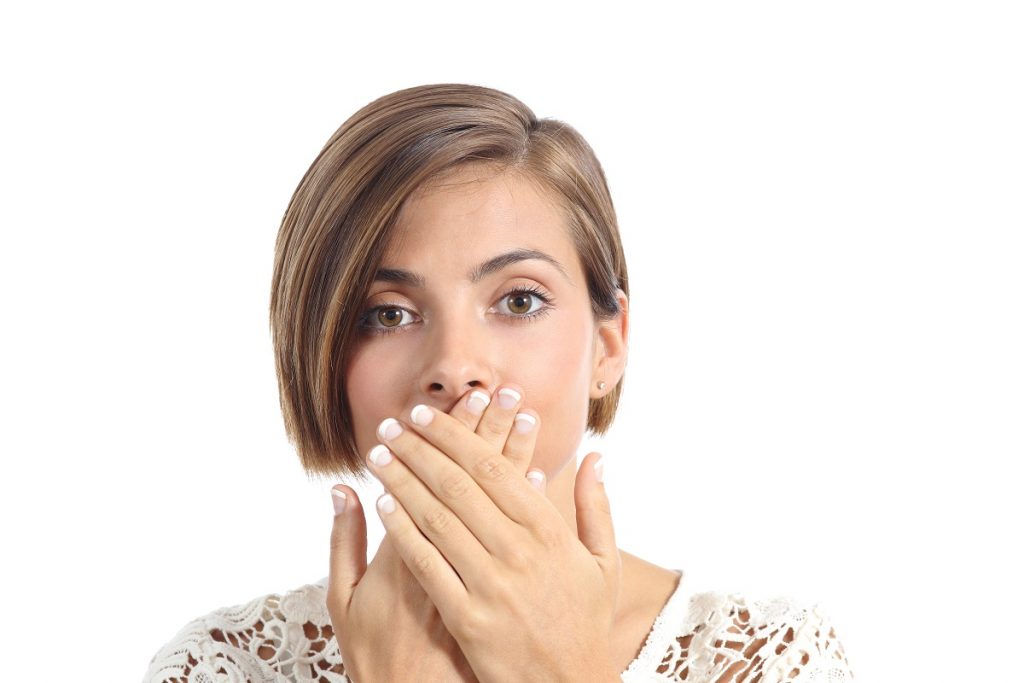- Regular dental check-ups can prevent halitosis by treating underlying dental problems and performing professional cleanings.
- Consistent oral hygiene, including brushing, flossing, and scraping your tongue, can remove bacteria and prevent bad breath.
- Mouthwash helps kill bacteria, freshen breath, and maintain oral cleanliness, which is especially useful for halitosis sufferers.
- Staying hydrated by drinking plenty of water keeps your mouth moist, stimulating saliva production that fights decay and bad breath.
- Avoiding certain foods and drinks, like spicy, sugary, and alcoholic items, and dairy products can prevent bad breath.
Halitosis, or bad breath, is a common problem caused by poor oral hygiene, certain foods, and underlying health conditions. It can affect your social life and confidence levels and even indicate a more serious health problem. If you suffer from halitosis, you can follow several oral health tips to improve your breath and overall oral health. This blog post will discuss some of the best oral health tips for dealing with halitosis.
Visit Your Dentist Regularly

Regular visits to your local dental clinic for check-ups and cleanings are essential for maintaining good oral health and preventing halitosis. Your dentist can detect and treat any dental problems, such as tooth decay and gum disease, that can contribute to bad breath. Also, your dentist can provide professional cleanings to remove plaque and tartar that can cause bad breath.
If they find any underlying causes of your halitosis, such as gum disease or cracked teeth, your dentist can recommend the best treatment options. Regular check-ups and cleanings can help keep your breath fresh and your teeth and gums healthy.
Brush and Floss Regularly
Practicing good oral hygiene is the most effective way to improve your breath and prevent halitosis. Brush your teeth and tongue for two minutes at least twice daily. Use a soft-bristled brush and fluoride toothpaste to remove plaque and bacteria that can cause bad breath. Also, floss daily to remove food particles and plaque between your teeth. This will help prevent gum disease and keep your breath fresh.
Although brushing and flossing are essential habits, they don’t guarantee that your breath will be odor-free. To ensure your breath is always fresh, use a tongue scraper to remove bacteria from the back of your tongue. This will help reduce bad breath-causing bacteria.
Use Mouthwash
Mouthwash helps kill bacteria, freshen your breath, and keep your mouth clean. It is especially helpful if you suffer from halitosis. Look for a mouthwash that contains antimicrobial agents, such as chlorhexidine or cetylpyridinium chloride, which can help kill bacteria and freshen your breath. Also, use mouthwash after meals or snacks to wash away food debris and bacteria that can cause bad breath.
Drink Plenty of Water

Drinking water can help keep your mouth moist and stimulate saliva production. Saliva is vital in protecting your teeth and gums from decay and infection. Also, a dry mouth can contribute to bad breath by allowing bacteria to grow and thrive. Drinking plenty of water can help keep your mouth hydrated, fresh, and healthy. A good rule of thumb is to drink at least eight glasses of water daily.
Avoid Foods that Cause Bad Breath
Some foods can contribute to bad breath. Different foods can produce different odors, so it’s a good idea to avoid those that are particularly pungent. Here are some of them:
Spicy foods
Many spicy foods, such as garlic and onions, contain compounds that make your breath smell less appealing. They stick to your teeth and gums, making it difficult to remove them with brushing and flossing.
Sugary foods
Sugary foods and drinks can promote the growth of bad breath-causing bacteria and lead to tooth decay. Limiting or avoiding sugary snacks and beverages, such as candy, cookies, sodas, and juices, is best.
Alcoholic beverages
Alcohol can dry out your mouth, contributing to bad breath. It’s best to limit the amount of alcohol you drink to keep your breath smelling fresh. You should also avoid drinks that contain sugary mixers, such as soda or juice.
Dairy products
Dairy products, such as cheese, can cause bad breath due to the bacteria in them. Eating these foods can also contribute to tooth decay, which can also cause bad breath.
Halitosis can be an embarrassing problem, but it can be improved with good oral hygiene and regular dental care. Following these oral health tips can freshen your breath, improve your oral health, and boost your confidence. Remember to brush and floss regularly, use mouthwash, drink plenty of water, avoid foods that cause bad breath, and visit your dentist regularly. You can enjoy fresh breath and a healthy smile with these simple habits.


